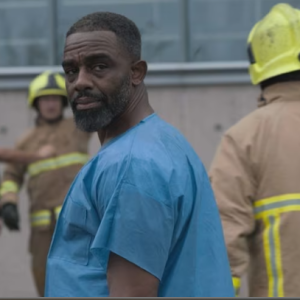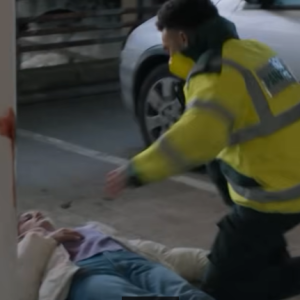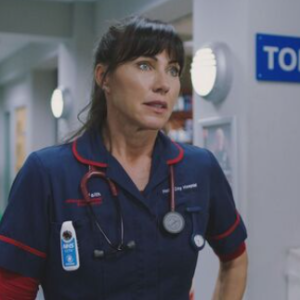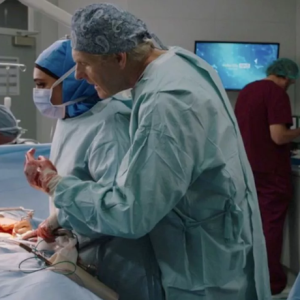After thirty-nine years of heart-stopping emergencies, shattering betrayals, and unforgettable goodbyes, Casualty—the BBC’s longest-running medical drama—is about to undergo one of the most seismic shifts in its history, a change that will reverberate through both the fictional halls of Holby and the real-world television landscape. For decades, the show has been defined by its home: the fictional city of Holby in the county of Wyvern, a place woven so deeply into the fabric of British TV drama that it feels real to audiences who have watched its emergency department crackle with life since 1986. Holby has become a second home to millions of viewers who know every corner of its ED, every creak of its corridors, every familiar face who has walked through its doors only to emerge scarred, strengthened, or forever changed. But the BBC has revealed a bold plan that will uproot the series from the world it has so carefully built, asking audiences to embrace an entirely new setting as the beating heart of Casualty: a fictional Welsh hospital that will reflect the reality, struggles, and triumphs of the NHS in Wales. The decision, outlined in a document to potential producers bidding for the show’s future, does not come lightly. It is nothing less than the dawn of a new era for Casualty, and the stakes could not be higher.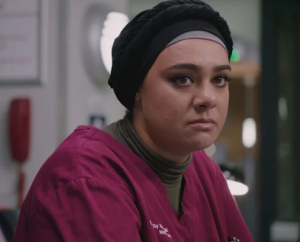
The change, though staggering in scale, is not a move into uncharted waters for the BBC. Since 2011, Casualty has filmed at the BBC’s Roath Lock Studios in Cardiff, far from the Bristol backdrop that originally inspired Holby’s fictional geography. In many ways, the show has already had one foot in Wales for over a decade, but the storytelling itself has never acknowledged it. That is about to end. The BBC’s tender document lays out in stark terms that the new in-universe setting must authentically portray Wales, with tenderers instructed to embrace the unique culture, challenges, and realities of the Welsh NHS. “We are asking tenderers to include authentic representation of Wales and reflect the reality of the Welsh NHS,” the document declares, an almost mission-statement for the next chapter of Casualty. At its core, the demand is not for a radical reinvention of the show, but for an evolution, a weaving of new authenticity into the drama without severing the lifeline that connects nearly four decades of television history. The familiar intensity of the ED, the blend of harrowing emergencies and intimate human drama, will remain, but it will now be infused with a distinctly Welsh heartbeat. The fictional hospital will change, but the essence of Casualty—the chaos, the compassion, the resilience of doctors and nurses on the front line—will endure.
For the characters who have carried the show across generations, the move is more than just a change of scenery; it is a dramatic upheaval of their world, one that echoes the turbulence of their personal storylines. The BBC has made clear that existing characters are expected to make the transition to the new setting, ensuring that the audience’s connection to beloved figures will not be abruptly severed. Yet this relocation opens a door to reinvention. It is a chance to introduce new characters rooted in Welsh culture, to diversify the voices and perspectives at the centre of the show, and to allow Casualty to mirror more closely the changing face of modern Britain. With the promise of continuity balanced against the allure of fresh beginnings, the creative challenge is as daunting as it is thrilling. For the tenderers vying for control of the show, the brief is to thread a delicate needle: preserve the familiarity audiences cling to while building an entirely new world that feels authentic, necessary, and bold. Failure to strike this balance risks alienating a loyal fanbase that has stuck with the series through countless cast changes and narrative upheavals, but success could breathe new life into a show nearing its fortieth anniversary.
The timeline for this reinvention is as ambitious as the plan itself. The BBC intends to announce the new producer in November, with the successful company set to deliver three seasons of twenty-four episodes each between late 2026 and autumn 2029, alongside the possibility of a two-year extension. For a show that has outlasted industry trends, cultural shifts, and even its sister programme Holby City, which ended in 2022 after its own experimental pitch process, the stakes of this moment cannot be overstated. BBC Studios, which currently produces Casualty, is itself in the running to retain the series, but the door is open to outsiders, a rare opportunity for fresh creative blood to reshape one of the broadcaster’s crown jewels. The implications stretch beyond the screen: this is a test of how to evolve legacy television in an age when audiences demand authenticity, inclusivity, and resonance with the world they live in. The very survival of Casualty as a relevant, vital drama rests on whether this gamble pays off.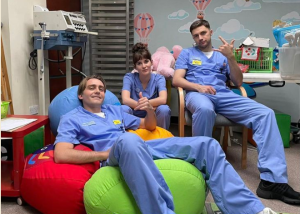
What history shows is that this is not the first time the BBC has shifted the fictional geography of a long-running drama. Waterloo Road once uprooted its teachers and students from Manchester to Scotland for the final three seasons of its original run, carrying its audience through the transition by placing familiar characters against a new cultural backdrop. The lesson is clear: change, even drastic change, does not have to spell death. It can, if handled with care and vision, spark renewal. Yet with Casualty, the challenge is more formidable because the show’s DNA is so deeply entwined with Holby, a city that has become a character in its own right. To remove it is to risk tearing at the fabric of the series, but to keep it forever could risk stagnation. This is the precipice on which the show now stands: a moment of danger and possibility, of endings and beginnings. As the corridors of Holby prepare to fall silent and a new Welsh hospital prepares to rise, viewers are left with a mix of trepidation and anticipation. The only certainty is that the world of Casualty is about to change forever, and when the doors of the new emergency department swing open in late 2026, the show’s millions of fans will be watching, holding their breath, ready to see if their beloved drama can survive—and thrive—through its boldest transformation yet.
